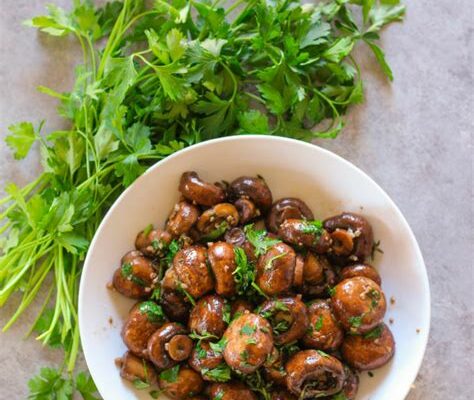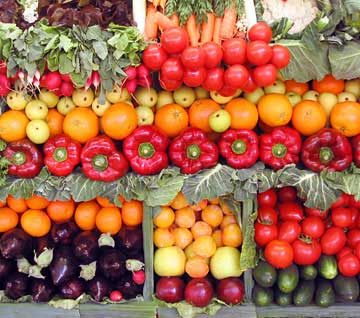In a world filled with infectious diseases and health challenges, having a strong immune system is paramount. Fortunately, science has unraveled several strategies to bolster our body’s defenses against infections and illnesses. Drawing upon recent research, FOUR categories of findings below delve into the best ways to boost your immune system, with a particular focus on the pivotal role of gut health and nutrition.
The Immune System: A Formidable Defense
Our immune system is a complex network of cells, tissues, and organs that work tirelessly to defend us against harmful pathogens like bacteria, viruses, and fungi. Strengthening this defense mechanism can significantly reduce the risk of becoming ill.
1. Nutrition: The Foundation of Immune Health
We know this, the importance of a balanced diet cannot be overstated. Nutrients from the food we consume play a critical role in immune function. Research by Brower JL in “The Threat and Response to Infectious Diseases” highlights how the right nutrients can bolster the immune system. We often forget, so here’s a gentle reminder. Every meal and every snack must have some of these key nutrients:
-
Vitamin C: Abundant in fruits and vegetables, vitamin C enhances the production and function of immune cells.
-
Vitamin D: Sunlight and certain foods like fatty fish provide this essential vitamin, which regulates immune responses.
-
Zinc: Found in nuts, seeds, and whole grains, zinc is crucial for the development and function of immune cells.
-
Probiotics: According to de Oliveira GLV et al. in "Intestinal dysbiosis and probiotic applications in autoimmune diseases," probiotics (think FERMENTED FOODS) can help maintain a balanced gut microbiome, promoting immune health. 1 Tsp. per meal or even once daily will go a long way in providing your gut with probiotics. The best and easiest (and least expensive) pre and probiotics come in the form of fermented foods.
2. Gut Health: The Gut-Immune Connection
The gut microbiota, an ecosystem of trillions of microorganisms living in our intestines, plays a pivotal role in immune system modulation. Dong L’s research in “Gut Microbiota and Immune Responses” and Lazar V’s study in “Aspects of Gut Microbiota and Immune System Interactions” underscore the critical role of the gut-immune axis.
Diet and Gut Microbiota: A Western diet high in processed foods, as discussed in Zinöcker MK and Lindseth IA’s “The Western Diet-Microbiome-Host Interaction and Its Role in Metabolic Disease,” can negatively impact gut health. Switching to a diet rich in fiber, fruits, and vegetables can promote a diverse and healthy gut microbiome.
Probiotics and Prebiotics: Probiotics are live bacteria that can promote a balanced gut microbiota. Prebiotics, found in foods like garlic and onions, mushrooms and herbs such as Astragalus serve as nourishment for these beneficial bacteria. Immune Boost Herb Pack has beneficial mushrooms and full spectrum astragalus to make it easy and convenient to get these prebiotics daily. Add a half teaspoon of our concentrated granules to your coffee, tea or smoothie and you’ve just fed your gut bacteria for the day.
Avoiding Gut Disruptors: Certain factors, such as antibiotics, pesticides, and food additives, can harm the gut microbiome. Studies by Rueda-Ruzafa L, Liang Y, and Tu P in “Gut microbiota and neurological effects of glyphosate,” “Organophosphorus pesticide chlorpyrifos intake promotes obesity and insulin resistance through impacting gut and gut microbiota,” and “Gut Microbiome Toxicity: Connecting the Environment and Gut Microbiome-Associated Diseases” shed light on these harmful agents.
3. Environmental Factors: Beyond Diet
Environmental factors also play a crucial role in immune health. Recent research, such as that conducted by Jacquelyn Cheng et al. in “Food-Grade Metal Oxide Nanoparticles Exposure Alters Intestinal Microbial Populations,” underscores the importance of considering external factors:
Environmental Toxins: Exposure to environmental toxins, including nanoparticles and pesticides, can disrupt the gut microbiome and weaken immune defenses. Reducing exposure to such toxins is crucial. Eat organic as much as possible.
4. Lifestyle Factors: The Immune System’s Allies
In addition to nutrition and gut health, certain lifestyle factors can have a significant impact on your immune system’s strength.
Regular Exercise: Engaging in regular physical activity, as advised by Furman D and Davis MM in “New approaches to understanding the immune response to vaccination and infection,” can enhance immune function.
Adequate Sleep: Poor sleep quality and insufficient sleep can weaken the immune system. Aim for 7-9 hours of quality sleep each night.
Stress Management: Chronic stress can suppress the immune system. Practicing stress-reduction techniques like meditation and mindfulness can be beneficial.
Conclusion:
In an age where health threats abound, taking proactive steps to boost your immune system is essential. Science-backed strategies emphasize the pivotal role of nutrition, gut health, environmental considerations, and lifestyle choices. By adopting a balanced diet rich in immune-boosting nutrients, nurturing a diverse gut microbiota, reducing exposure to environmental toxins, and adopting a healthy lifestyle, you can fortify your body’s defenses and enjoy a healthier, more resilient immune system. Remember, a strong immune system is your best defense against the challenges of our modern world.
Sources
Brower JL. The Threat and Response to Infectious Diseases (Revised). Microb Ecol. 2018;76(1):19-36.
Furman D, Davis MM. New approaches to understanding the immune response to vaccination and infection. Vaccine. 2015;33(40):5271-5281. doi:10.1016/j.vaccine.2015.06.117
Dong L. Gut Microbiota and Immune Responses. Adv Exp Med Biol. 2020;1238:165-193.
de Oliveira GLV, Leite AZ, Higuchi BS, Gonzaga MI, Mariano VS. Intestinal dysbiosis and probiotic applications in autoimmune diseases. Immunology. 2017;152(1):1-12. doi:10.1111/imm.12765
Lazar V, Ditu LM, Pircalabioru GG, et al. Aspects of Gut Microbiota and Immune System Interactions in Infectious Diseases, Immunopathology, and Cancer. Front Immunol. 2018;9:1830.
Vich Vila A, Collij V, Sanna S, et al. Impact of commonly used drugs on the composition and metabolic function of the gut microbiota. Nat Commun. 2020;11(1):362.
Rueda-Ruzafa L. Gut microbiota and neurological effects of glyphosate. Neurotoxicology. 2019 Dec;75:1-8.
Liang Y, Zhan J, Liu D, et al. Organophosphorus pesticide chlorpyrifos intake promotes obesity and insulin resistance through impacting gut and gut microbiota. Microbiome. 2019;7(1):19.
Tu P, Chi L, Bodnar W, et al. Gut Microbiome Toxicity: Connecting the Environment and Gut Microbiome-Associated Diseases. Toxics. 2020;8(1):19.
Jacquelyn Cheng, Nikolai Kolba, Alba Garcia-Rodriguez, et al. Food-Grade Metal Oxide Nanoparticles Exposure Alters Intestinal Microbial Populations, Brush Border Membrane Functionality and Morphology, In Vivo (Gallus gallus) Antioxidants 2023, 12(2), 431; https://doi.org/10.3390/antiox12020431
Zinöcker MK, Lindseth IA. The Western Diet-Microbiome-Host Interaction and Its Role in Metabolic Disease. Nutrients. 2018;10(3):365.
Karl JP, Hatch AM, Arcidiacono SM, et al. Effects of Psychological, Environmental and Physical Stressors on the Gut Microbiota. Front Microbiol. 2018;9:2013.
Liu RT. The microbiome as a novel paradigm in studying stress and mental health. Am Psychol. 2017;72(7):655-667.
Bressa C, Bailén-Andrino M, et al. (2017) Differences in gut microbiota profile between women with active lifestyle and sedentary women. PLoS ONE 12(2): e0171352.
Benedict C, Vogel H, Jonas W, et al. Gut microbiota and glucometabolic alterations in response to recurrent partial sleep deprivation in normal-weight young individuals. Mol Metab. 2016;5(12):1175-1186.
Smith RP, Easson C, Lyle SM, et al. Gut microbiome diversity is associated with sleep physiology in humans. PLoS One. 2019;14(10):e0222394.
SA Gharib, MD et al. Transcriptional Signatures of Sleep Duration Discordance in Monozygotic Twins. Sleep, January 2017
Ghosh SS, Wang J, Yannie PJ, Ghosh S. Intestinal Barrier Dysfunction, LPS Translocation, and Disease Development. J Endocr Soc. 2020;4(2):bvz039.
Rowland I, Gibson G, Heinken A, et al. Gut microbiota functions: metabolism of nutrients and other food components. Eur J Nutr. 2018;57(1):1-24. doi:10.1007/s00394-017-1445-8
Morowitz MJ, Carlisle EM, Alverdy JC. Contributions of intestinal bacteria to nutrition and metabolism in the critically ill. Surg Clin North Am. 2011;91(4):771-viii. doi:10.1016/j.suc.2011.05.001.
Corrêa-Oliveira R, Fachi JL, Vieira A, Sato FT, Vinolo MA. Regulation of immune cell function by short-chain fatty acids. Clin Transl Immunology. 2016;5(4):e73. Published 2016 Apr 22. doi:10.1038/cti.2016.17
Lobionda S, Sittipo P, Kwon HY, Lee YK. The Role of Gut Microbiota in Intestinal Inflammation with Respect to Diet and Extrinsic Stressors. Microorganisms. 2019;7(8):271.
Jandhyala SM, Talukdar R, Subramanyam C, Vuyyuru H, Sasikala M, Nageshwar Reddy D. Role of the normal gut microbiota. World J Gastroenterol. 2015;21(29):8787-8803. doi:10.3748/wjg.v21.i29.8787
Hiippala K, Jouhten H, Ronkainen A, et al. The Potential of Gut Commensals in Reinforcing Intestinal Barrier Function and Alleviating Inflammation. Nutrients. 2018;10(8):988.
Linares DM, Ross P, Stanton C. Beneficial Microbes: The pharmacy in the gut. Bioengineered. 2016;7(1):11-20. doi:10.1080/21655979.2015.112601.
Davani-Davari D, Negahdaripour M, Karimzadeh I, et al. Prebiotics: Definition, Types, Sources, Mechanisms, and Clinical Applications. Foods. 2019;8(3):92.
Cassandra Boyd and John Gieng. Determination of the Prebiotic Content of Foods in the 2015-2016 Food and Nutrient Database for Dietary Studies (FNDDS). NUTRITION 2023, American Society for Nutrition
Miclotte L, Van de Wiele, T. Food processing, gut microbiota and the globesity problem. Critical Reviews in Food Science and Nutrition. 2020;60:11, 1769-1782.
Monda V, Villano I, Messina A, et al. Exercise Modifies the Gut Microbiota with Positive Health Effects. Oxid Med Cell Longev. 2017;2017:3831972.



